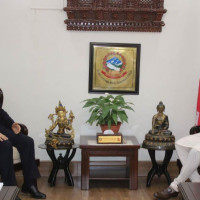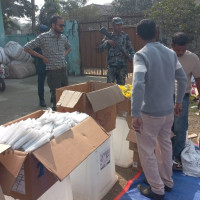- Thursday, 26 February 2026
Delivery Failure Erodes Public Trust
When the world was hit by the COVID-19 pandemic a few years ago, many Asian countries like China, Singapore, and South Korea were found relatively more effective than the Western democratic countries in responding to the crisis. This invited a broader discussion on the relatively sluggish performance of Western democracies in fixing the problem and delivering as compared to the Asian countries. China was reported to have constructed a 10,000-bed hospital in ten days to tackle the crisis, whereas the US lost a larger number of people, allegedly due to a tardy response to the issue. There is growing concern today over the fact that Western democracies are underperforming relative to some non-Western countries like China, Qatar, Dubai, Singapore, especially in the provision of large-scale public goods such as infrastructure and the capacity to deliver economic growth, reduce poverty, and unemployment.7
Survey data of the Pew Research Center – a well-known US fact tank - indicate that global dissatisfaction with democracy is connected to poor performance in the economic realm. Citizen confidence in government is low in established democracies such as France, Germany, the United States, and the United Kingdom. But it is stronger in countries such as China, Saudi Arabia, Singapore, and the United Arab Emirates. Various empirical studies have connected service delivery to winning the hearts and minds of citizens across different types of regimes. Studies show that societies with the most political trust also have some of the highest GDP growth rates, including countries such as China, Qatar, Rwanda, and Vietnam. Those with the least political trust include democracies such as Greece, Italy, Japan, and Spain.
Democratic legitimacy
Delivery and development are important for democratic legitimacy and popular satisfaction. Francis Fukuyama - a world-renowned political analyst - in an article published in the Journal of Democracy argues that legitimacy requires that government uphold its side of its implicit contract with citizens and subjects, namely the provision of goods and services, fair processes in policy-determination and implementation, and a demonstrable administrative capacity. However, public-service delivery is not the only way that governments can build trust among their citizen; they should also be honest and dedicated.
Government policy decisions can have large, tangible, and direct impacts on individual livelihoods. So when poor economic management leads to major crises, the public often loses faith in political leaders and the political system as a whole. Oftentimes, it manifests in widespread protests, unrest and outbursts. Larry Diamond, a famous democracy expert, has stated that “a long record of effective performance — in delivering economic growth and opportunity, reducing poverty and inequality, providing social services, controlling corruption, and maintaining political order and security — fills a reservoir of legitimacy.1
When we talk of the legitimacy of the Nepali political system, it shows that poor delivery has taken a heavy toll. Obviously, for the present coalition government that had been brought into shape through a cobbling of political forces mutually estranged to each other, there was no other option than to deliver to redeem the pledge made to the citizens. However, the party leaders seem bent on aggrandizing their partisan turf. The government's performance has not been able to assuage the concerns of the constituent stakeholders within its own party too. The economic activities in the country are on the decline, resulting in shortfalls in revenue raising to meet the recurring expenditure.
The government needs to perform to inspire hope and optimism in the people to earn legitimacy. When a government makes tall promises but fails to deliver to meet the basic minimum aspirations of the people, popular disappointments and disenchantments are bound to grow and burst on the streets. In fact, the government has been expected to target the basic day-to-day problems of the people, but the inconveniences and hardships faced by them have not been ameliorated.
The transformative promise of federal governance thus appears more or less overlooked and neglected. Political functionaries, not only at the central level but also at the sub-national level, have gone overboard to nurse their own vested interests. When one scans through the news media headlines, one can come across several instances that indicate how local villages in the far-off districts have been allowed to suffer and languish in deprivation due to the highhandedness and parochial interests of the dominant local politicians who work in collusion with local contractors.
Crony’s firms
News reports say that executive officials at the local governments generally tend to award contracts to their cronies’ firms in carrying out road construction. In a report published not very long ago, it is said that the road building caused the destruction of a host of local irrigation projects in Bajhang district alone. As a result, villages like Rayal have been badly impacted where paddy plantation has not taken place due to destruction of local irrigation system entirely built and managed by the local populace. Hundreds of families are thus left to fend off for themselves for reason of destructive and unsustainable road building practices clamped down in the villages without regard to the natural drainage pattern and ecosystem.
As this is the terminal month of the ongoing fiscal year, Ashare Bikash has been unleashed by federal, provincial and local agencies to consume the available resources without giving consideration to the quality and sustainability of the projects. The incumbent government should be aware of the pitfalls and shortcomings seen in the performance and delivery at all levels over the years through course correction measures and infuse new hope and inspiration among people who are now feeling duped by the political leaders and government officials bent on making tall promises but fail to deliver. This alone can ensure the legitimacy of the democratic system.
(The author is presently associated with Policy Research Institute (PRI) as a senior research fellow. rijalmukti@gmail.com)





-square-thumb.jpg)







-original-thumb.jpg)


